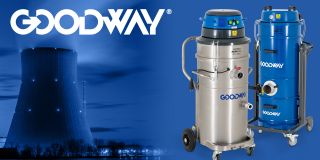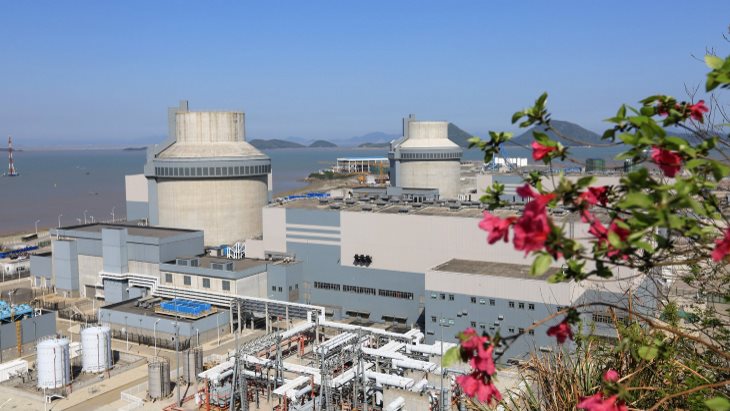U.S. principal deputy assistant secretary of state for international security and nonproliferation Ann Ganzer (right) with Nii Kwashie Allotey of the Ghanaian Nuclear Regulatory Authority (center). (Photo: U.S. Embassy in Ghana )
The U.S. Embassy in Ghana last week announced $1.75 million to support establishing the West African nation as a small modular reactor regional training hub and center of excellence for the sub-Saharan African region.
The project is backed by the Foundational Infrastructure for Responsible Use of Small Modular Reactor Technology (FIRST) capacity-building program, in which Ghana has participated since 2022.
Dignitaries assemble after the signing of a memorandum of agreement to help Indonesia develop a nuclear energy program. Among those at the signing were Indonesia's minister for economic affairs Airlangga Hartarto, U.S. ambassador to Indonesia Sung Y. Kim, and U.S. Department of State principal deputy assistant secretary Ann Ganzer. (Photo: State Dept./Erik A. Kurniawan)
The United States and Indonesia have announced a strategic partnership to help the latter nation develop its nuclear energy program, supporting its interest in deploying small modular reactors to meet energy security and climate goals.
The world's first AP1000 reactors to enter operation, Sanmen units 1 and 2, in China. (Image: Westinghouse Inc.)
Westinghouse Electric Company and South Korea’s Hyundai Engineering & Construction have signed an agreement to “jointly participate in global AP1000 plant opportunities,” the Pennsylvania-based nuclear technology firm announced on May 24.




-2018.jpg)